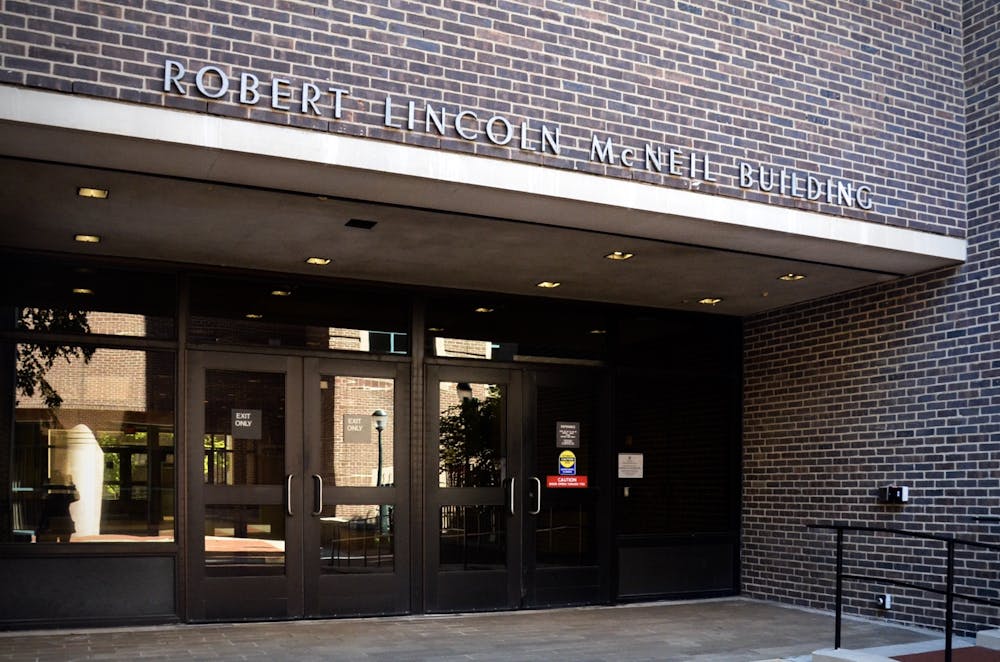After the Asian American Studies Program recently doubled in size, program directors and new faculty hires reflected on how the expansion will provide wide-ranging opportunities for students.
The program hired three new professors and two affiliated faculty members this semester. It also welcomed inaugural fellow Weirong Guo through the Panda Express Postdoctoral Fellowship, which is funded by Panda Express’s corporate giving fund. The changes have allowed for new course listings, programming, and research opportunities for students across all disciplines.
Amongst the three new hires are professors with expertise in history, english, and sociology: Hardeep Dhillon, Bakirathi Mani, and Tahseen Shams, respectively. The two new affiliated faculty members are Emily Ng in anthropology and Linda Pheng in the Graduate School of Education.
Fariha Khan, co-director of the ASAM program, said that she felt positively about the expansion.
“All of these wonderful faculty members enrich the program, not only through their courses but also through the research opportunities, the programming that we’re able to offer that will support students’ research and intellectual interests,” Khan said.
Dhillon, an assistant professor in history, taught a course this fall titled “Immigration and the Making of US Law” and conducted a seminar titled “The History of Family Separation.” Dhillon aims to study through a perspective of immigration history in the United States, specifically analyzing the 20th century through the lens of the family in terms of race, gender, sexuality, and disability.
The ASAM program was founded in 1996. Dhillon highlighted the role of student protests arguing for the representation of diverse experiences and histories in the curriculum.
“The presence of ASAM at Penn is a result of not just Penn faculty and administrators, but Penn students who have rallied for a long time for the presence and expansion of ASAM,” Dhillon said. “My job will always be in response to student needs."
RELATED:
How Asian American Studies at Penn stacks up against programs across the Ivy League
Asian American Studies undergraduate board hosts conference on displacement struggles in Phila.
Mani is the Penn Presidential Compact Professor of English and currently focuses on South Asian American visual and exhibition cultures. Earlier this fall, Mani taught a class titled “Invisible Asian American Cultural Critique,” which examined the binary between visibility and invisibility of Asian Americans through mediums such as music, food, performance, art, and literature. She will teach a course titled “Politics of Solidarity: South Asians in America” this spring.
Mani said that she was grateful for the Panda CommUnity Fund's support of the new fellowship. Over the next three years, the funding will allow for the addition of five postdoctoral fellows conducting in-depth research on topics in Asian American Studies.
“This fellowship is just one component of how we’ll constantly have new courses to introduce to the students,” Mani said. “Students can also see more co-curricular programs that come with these courses, where we might invite speakers and host conferences that are linked to what we teach.”
Shams, assistant professor in sociology, examines how migration and global inequalities affect immigrants, specifically those from Muslim-majority countries. She authored the book “Here, There, and Elsewhere: The Making of Immigrant Identities in a Globalized World" and is currently working on a second book.
David Eng, faculty director of the program along with Khan, highlighted the program's expansive reach.
“ASAM is one of the few places where we teach every student from every school. We teach every single major, geographical and religious identity group, class position, and political position. It is extremely rare to see that,” Eng said.
The ASAM program celebrated its 25th anniversary in 2022 and held a welcome-back lunch on Sep. 22. Dhillon said that she looks forward to the continuing expansion of the program and hopes that Asian-American studies can come to the forefront of curricula.
“Programs like Asian American studies are often seen as a supplement to student learning and course curriculum at the university,” Dhillon said. “What I would like to see is them being integral to student learning and course curriculum, so their inclusion leads to a fundamentally different retelling of the way that we understand history in the United States and beyond.”









